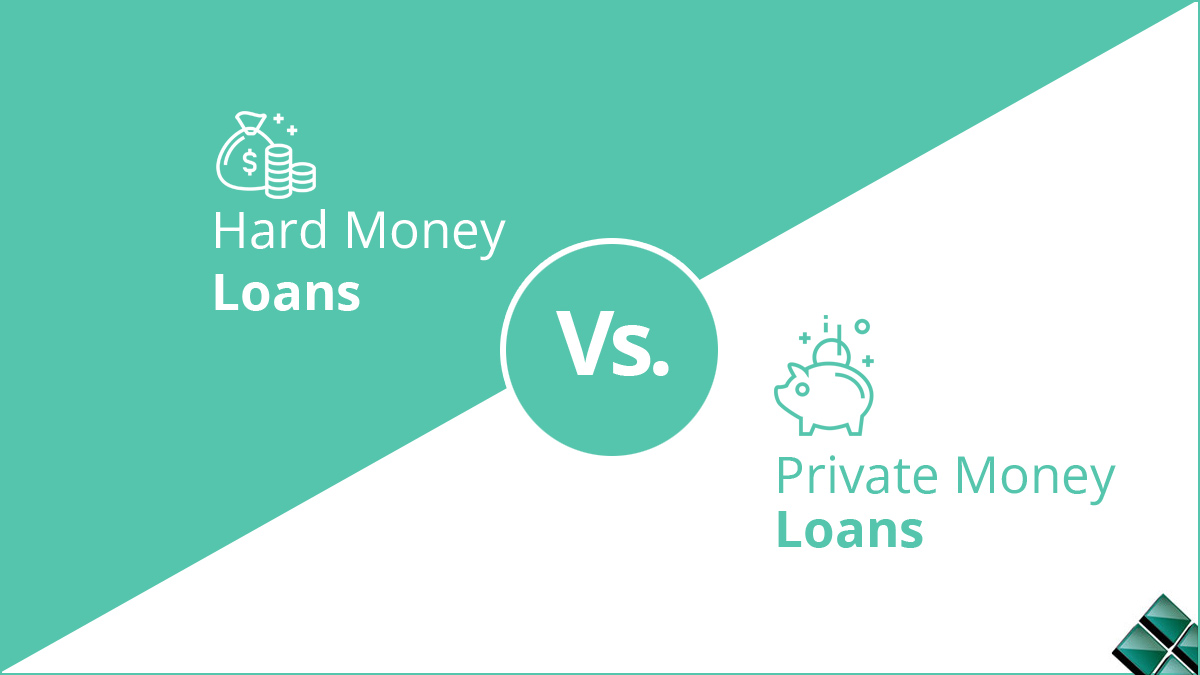Home » Blog » Hard Money Loans » Hard Money vs. Private Money Loans: Understanding the Differences

When it comes to real estate financing, the options can seem overwhelming. Two commonly used alternatives to traditional bank loans are hard money and private money loans. While these terms are sometimes used interchangeably, they refer to distinct types of lending. Knowing the differences of hard money and private money loans can help you decide which might be the right fit for your real estate investment needs.
Hard money loans are typically offered by professional real estate lending companies or individuals who specialize in short-term, asset-based lending. Here are some key characteristics of hard money loans:
Hard money loans are secured by the value of the real estate property itself. The lender evaluates the property’s potential rather than focusing heavily on the borrower’s creditworthiness.
Hard money loans are designed to be short-term solutions. Ensure you have one or multiple strong exit strategies in place to pay off the bridge loan. Whether it’s through property sale, refinancing, or another means, having a solid plan for repayment enhances your credibility as a borrower.
Hard money loans often carry higher interest rates to that of traditional loans. This difference in rates can be attributed to the short-term nature of hard money loans and the perceived higher risk.
Hard money loans are known for their speed and accessibility. They are ideal for real estate investors who need to act quickly, such as those involved in fix-and-flip projects.
In hard money lending, the primary focus is on the property being financed and its potential for profitability. Borrowers often need to present a clear plan for the property’s improvement or development.
Private money loans, on the other hand, involve borrowing from private investors or individuals who are not part of a formal lending institution. Here’s what you should know about private money loans:
Now that we’ve explored the basics of both hard money and private money loans, let’s highlight the key differences:
The choice between hard money and private money loans depends on your specific financial needs, goals, and circumstances. Here are some factors to consider:
Both hard money and private money loans offer unique advantages and disadvantages. Understanding the differences between them is crucial for making an informed decision that aligns with your real estate investment goals. Whether you opt for hard money or private money financing, the professional team at RTI Bridge Loans is here to assist you every step of the way, ensuring your real estate investments are supported by the right financial solutions.
RTI Bridge Loans is your Los Angeles hard money lender and we’re here to provide you with clarity and guidance in your real estate financing journey. With a history dating back to 2004, we have successfully assisted countless clients with their short-term bridge loan needs in Southern California and beyond. Contact us at 562-857-2285 on how to get started.

RTI Bridge Loans, Inc. is primarily a Direct Portfolio Lender in Los Angeles County. We have 40 years of experience investing in all aspects of real estate: From residential development, private money lending, hard money and fix and flip loans.
© 2024 RTI Bridge Loans, Inc. ALL RIGHTS RESERVED.
Financial Services Marketing by Gomarketing
